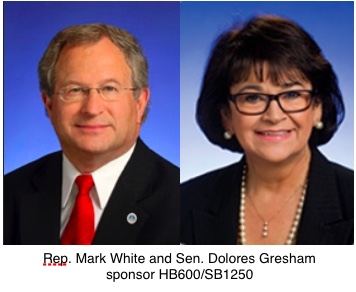As in suspected Islamophobic or Anti-Semitic hate crimes? According to Tennessee’s Attorney General, yes.
It started with a 2013 event in Manchester, Tennessee, sponsored by the TN American Muslim Advisory Council (AMAC) called “Understanding the American Muslim Community.”
Shortly before the event, Obama-appointed U.S. Attorney Bill Killian was quoted – “We need to educate people about Muslims and their civil rights, and as long as we’re here, they’re going to be protected,” U.S. attorney Bill Killian told the Tullahoma News last week. “This is also to inform the public about what federal laws are in effect and what the consequences are.”
“Hateful statements directed at another will be used as evidence in a hate crime…”
It’s a back door way to punish what groups like the Southern Poverty Law Center (SPLC) and CAIR (Council on American Islamic Relations), subjectively label hate speech.
CAIR, a creation of the Muslim Brotherhood and which serves as a front organization for HAMAS, has helped fuel an industry of censoring protected First Amendment speech using subjectively defined “Islamophobia.”
And there was AMAC in 2013, pushing CAIR’s agenda with the help of the DOJ.
A 2019 Tennessee Attorney General Opinion in connection with the year’s HB600/SB1250, a bill based on Title VI of the Civil Rights Act, requiring colleges to use a specific definition of anti-Semitism, agrees with what the U.S. Attorney said in connection with the 2013 AMAC event in Manchester:
But the Supreme Court has also recognized that protected expression may be relevant evidence in evaluating whether an individual has engaged in prohibited conduct. In Wisconsin v. Mitchell, for example, a unanimous Court made clear that the “First Amendment . . . does not prohibit the evidentiary use of speech to establish the elements of a crime or to prove motive or intent.” 508 U.S. 476, 489 (1993); see also R.A.V., 505 U.S. at 389 (noting that some speech “can be swept up incidentally within the reach of a statute directed at conduct rather than speech”). Similarly, courts have repeatedly recognized that state officials are permitted to examine protected expression when enforcing Title VI and other anti-discrimination laws and policies, particularly for the purpose of evaluating motive or intent.
Title VI is part of the Civil Rights Act of 1964 which prohibits discrimination based on race, color or national origin in programs or actives which receive federal financial assistance.

Islamists in Tennessee have long been seeking avenues to codify the myth of Islamophobia in Tennessee law and this bill may well serve their purpose.
They tried it in 2018, when an earlier version of HB600/SB1250 was pending but was ultimately never passed. During that legislative session, Islamist activists, some associated with AMAC, met with Speaker Beth Harwell and told her “that they want a bill that would protect students who are bullied because of their religion. Islamist activists in Tennessee connect bullying in school to Islamophobia which they claim leads to being regularly victimized or bullied because of their religion.”
Fast forward to the 2020 Tennessee state legislature is in session and the same scenario is being played out.
Don’t be surprised when Islamists tell legislators supporting HB600/SB1250, that what’s good for the goose is good for the gander. Are your legislators paying attention?